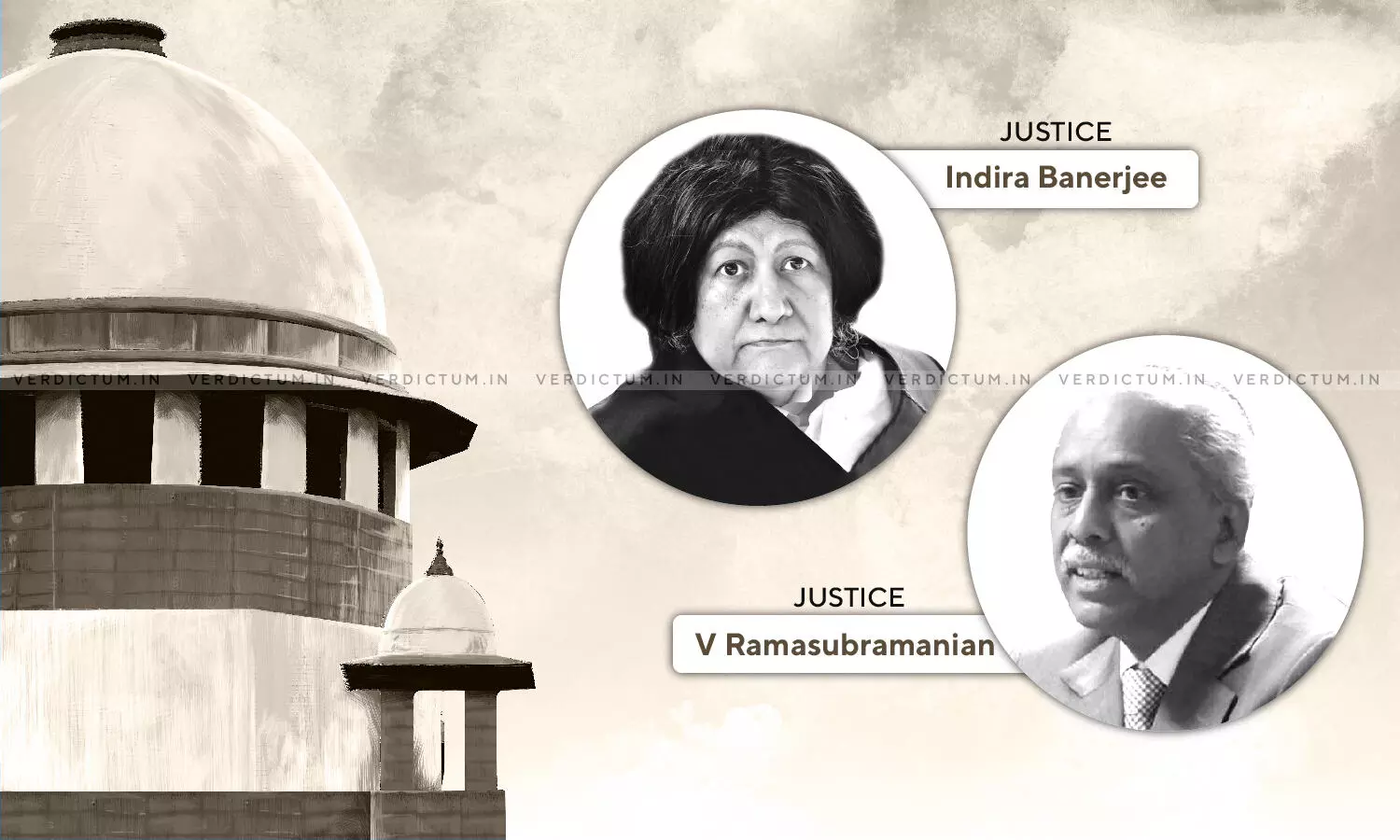
Entitlement Of Soldier To Disability Pension Cannot Be Determined Based On Medical Examination Held 20 Years After Discharge - SC
 |
|Entitlement Of Soldier To Disability Pension Cannot Be Determined Based On Medical Examination Held 20 Years After Discharge - SC
A Supreme Court Bench of Justice Indira Banerjee and Justice V Ramasubramanian heard an Appeal against a judgment and order passed by the Armed Forces Tribunal.
The Tribunal had allowed the application filed by the Respondent about 20 years after he was discharged from the Indian Army and held that the Respondent was entitled to disability pension. The arrears were restricted to three years prior to the date of application before the Tribunal.
Allowing the Appeal, the Supreme Court held that "the question of entitlement of soldier to disability pension cannot be determined on the basis of medical examination conducted 20 years after his discharge."
Counsel Arvind Kumar Sharma appeared for the Appellant before the Apex Court.
The Respondent was discharged from service on administrative grounds, as an undesirable Soldier under Rule 13(3) III(v) of the Army Rules, 1954.
At the time of discharge, the Respondent was in low medical category and the disability was assessed at 20% for two years.
The Respondent did not challenge his discharge under Rule 13(3) III(v) of the Army Rules, 1954 as an undesirable soldier. However, the Respondent made an application claiming disability pension. This was rejected by the Office of the Chief CDA(P).
The Respondent's Appeal before the Appellate Authority was also rejected.
Almost 20 years after his discharge and over 17.5 years after the dismissal of his appeal against the rejection of disability pension, the Respondent sent a legal notice claiming disability pension on the ground of parity with two other individuals.
The Supreme Court found that the Respondent was discharged under Rule 13(3) III(v) of the Army Rules, 1954 on administrative grounds as an undesirable soldier and not on the ground of medical disability, and therefore, his case was distinguishable from the case of the two other individuals.
Further, the Court opined that the Respondent could not challenge his dismissal on administrative grounds after two decades.
Opining that the Tribunal fell in error while passing its order that directed the Appellants to convene a Resurvey/Review Medical Board for the purpose of examining the applicant and assessing the degree of disability due to "Right Partial Seizure with Secondary Generalisation 345" and the probable duration of disability, the Court said "The tenor of the order itself shows that even the Tribunal realized that accurate medical opinion could not have been obtained after lapse of 30 years from the date of recruitment of the Respondent and after 20 years from the date of his discharge. The Tribunal, therefore, sought assessment of 'probable duration of disability'."
The Court found it of significance that the Resurvey Medical Board did not opine that the disability of the Respondent was either caused or aggravated by military service.
The Court also drew attention to the provisions of Rule 14(c) of the Entitlement Rules, which state that if a disease were accepted as having arisen in service, it must also be established that the conditions of military service determined or contributed to the onset of the disease and that the conditions were due to the circumstances of duty in military service. To that end, the Court opined that there were no materials before the Tribunal, on the basis of which the Tribunal could have been satisfied that, the conditions of service of the Respondent contributed to his disability and/or ailment.
Therefore, the order passed by the Tribunal was set aside and the Appeal was allowed.
Click here to read/download the Judgment